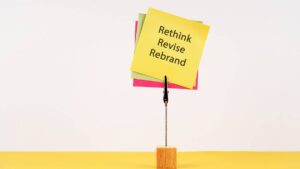Asthma costs Australia $28 billion a year. Respiri wants to change that.

Respiri last October launched its wheezo wheeze-detecting device, being sold for $99.50 plus a $9.95 monthly Software as a Service fee across Australia. (Image: Getty)
Asthma is the fourth most-prevalent non-communicable disease in the world, killing an estimated 400 Australians each year and costing the country $28 billion a year in healthcare costs and lost productivity, according to Deloitte. But one Melbourne company is working to commercialise a game-changing device to let patients better manage their disease.
Respiri (ASX:RSH) last October launched its wheezo wheeze-detecting device, being sold for $99.50 plus a $9.95 monthly Software as a Service fee in pharmacies across Australia, with overseas markets to come.
“We went to the marketplace and we’ll have 2,000 pharmacies signed up by the end of the quarter,” said Respiri chief executive and managing director Marjan Mikel.
Among the pharmacies stocking wheezo and building store inventory include one very large, well-known chain, says Mikel, but he can’t announce it just yet as the group’s parent company hasn’t yet given approval.
A handheld device that connects to a smartphone via Bluetooth, wheezo uses a machine learning algorithm to detect signs of “wheeze” when held to a patient’s chest.
Asthma patients often don’t know they when they have begun wheezing, which is why doctors use a stethoscope to listen for wheeze. But clinical research indicates that wheezo is just as accurate in detecting wheeze as an experienced respiratory physician with a stethoscope.
“Patients really have nothing available to them today to track how well their asthma is being managed,” Mikel says.
“And unfortunately, the first sign of poorly controlled asthma is an attack. … The problem with any disease state is there’s no problem, until there’s a problem. Attacks are the exception. There’s no positive feedback loop, when people are controlled well, so we provide all those things for patients.”
Wheezo’s integrated eHealth app tracks things like weather, pollen counts, air quality, medication usage and other potential factors that could trigger the bronchial tube inflammation that causes wheeze.
“You sort of build a longitudinal picture about a patient, and over time, work out exactly what the triggers are for that patient when it comes to asthma attacks,” Mikel says.
“As their symptoms get worse, they can nip that in the bud.”
Feedback, both market research and anecdotal, has been very positive, Mikel says. “I am yet to speak to with a parent with a child with asthma who hasn’t said, ‘I’ll pay whatever it costs.’”
But at a cost of about 30c a day, the device is very affordable for most anyone.
339 million potential customers
The potential market opportunity here is vast.
According to Asthma Australia, 11.2 per cent of Australians have asthma – 11.2 per cent of the population. Over 38,000 Australians were hospitalized because of asthma attack in 2017/18 and 436 died from the disease in 2019.
“It’s clear that whatever or however we’re approaching asthma management is not working for everyone,” Mikel says.
It’s a worldwide problem, and growing. The World Health Organization estimates there’s 339 million people with asthma, making it one of the most common non-communicable diseases worldwide.
Respiri is hoping to get US Food and Drug Administration approval this month to market the device in the United States, where more than 25 million Americans have asthma, resulting in 1.8 million emergency room visits and around 3,500 deaths per year.
The company already has CE Mark approval to market in Europe, Mikel says, but wants to master the Australian market first as a way to learn and mitigate risk.
The plan is to launch into the United Kingdom (where 5.4 million Brits have asthma) at the end of this year and the United States early in 2022.
In the US, Respiri believes it can get reimbursed $30 to $40 per month per patient, but setting up Medicare, Medicaid and health insurer approvals is a complicated issue.
Respiri is in advanced discussions with potential distribution partners, Mikel says.
This article was developed in collaboration with Respiri, a Stockhead advertiser at the time of publishing.
This article does not constitute financial product advice. You should consider obtaining independent advice before making any financial decisions.
Related Topics

UNLOCK INSIGHTS
Discover the untold stories of emerging ASX stocks.
Daily news and expert analysis, it's free to subscribe.
By proceeding, you confirm you understand that we handle personal information in accordance with our Privacy Policy.








